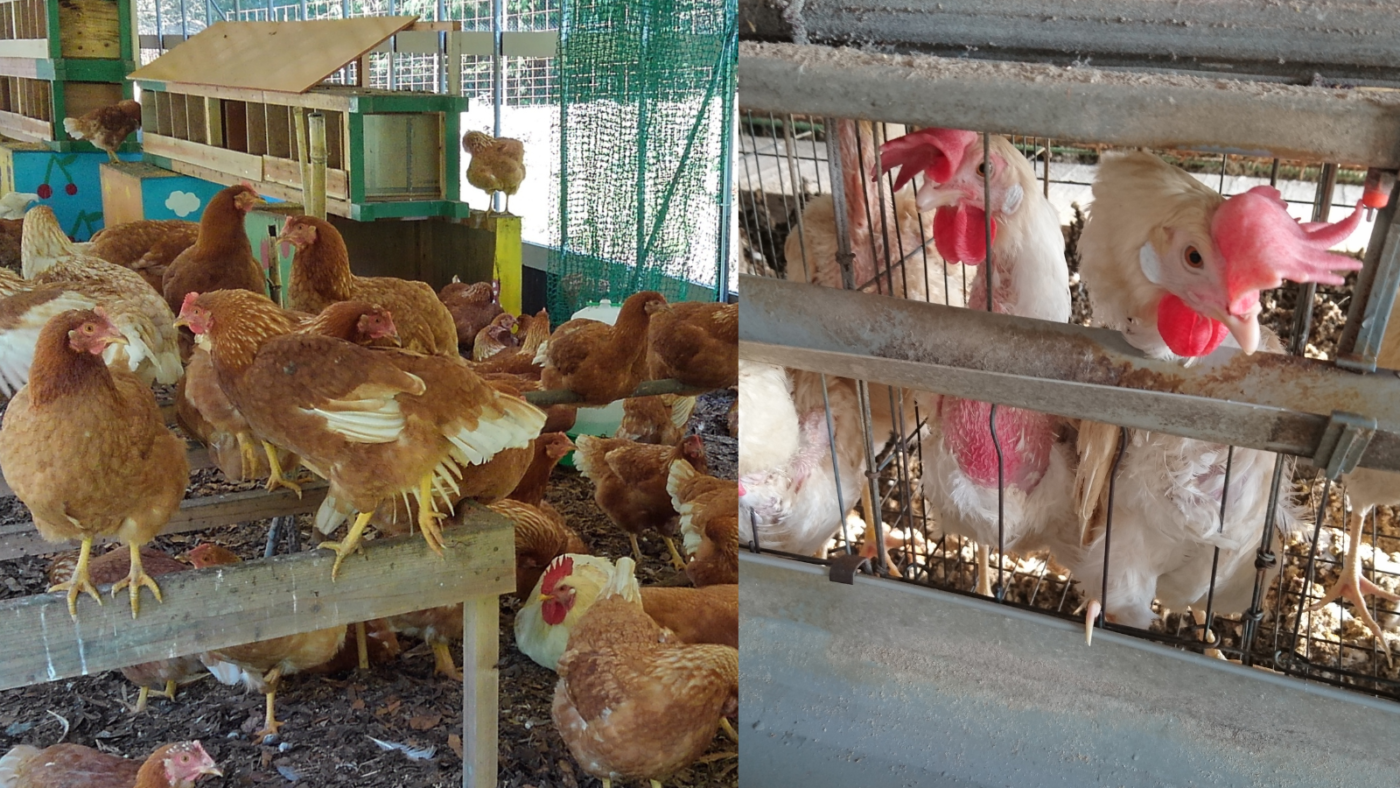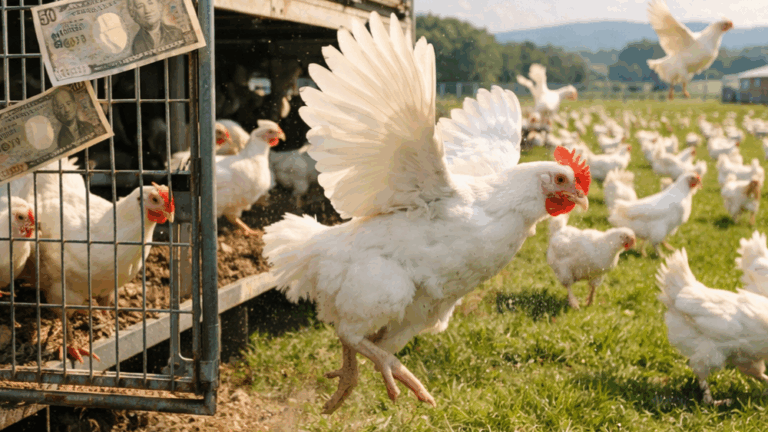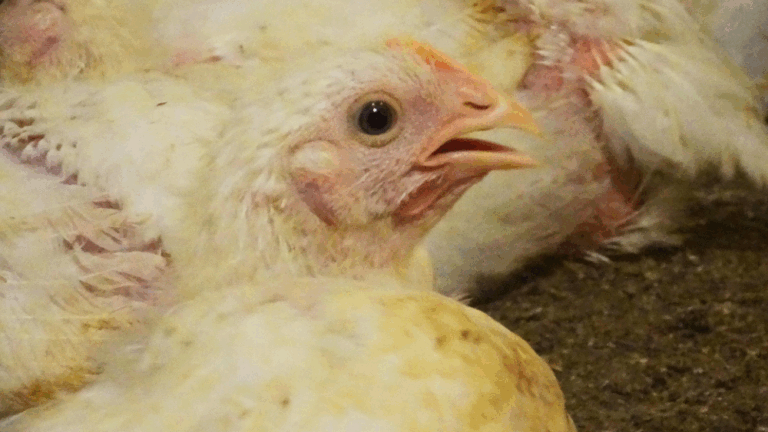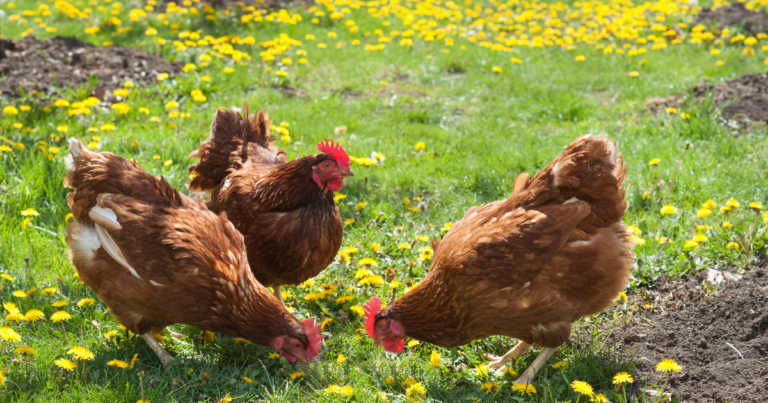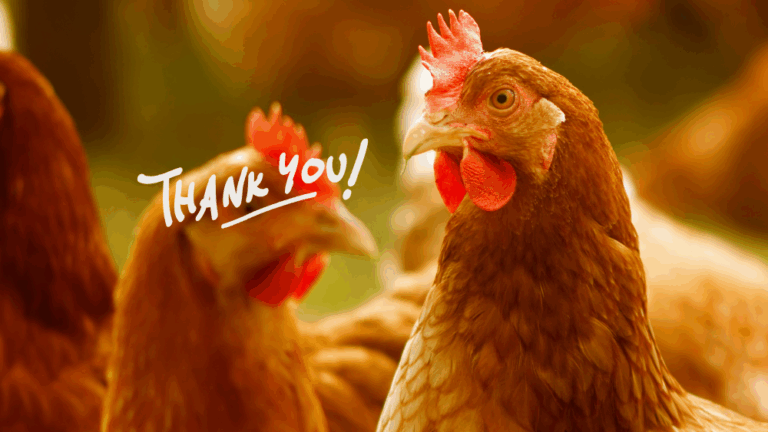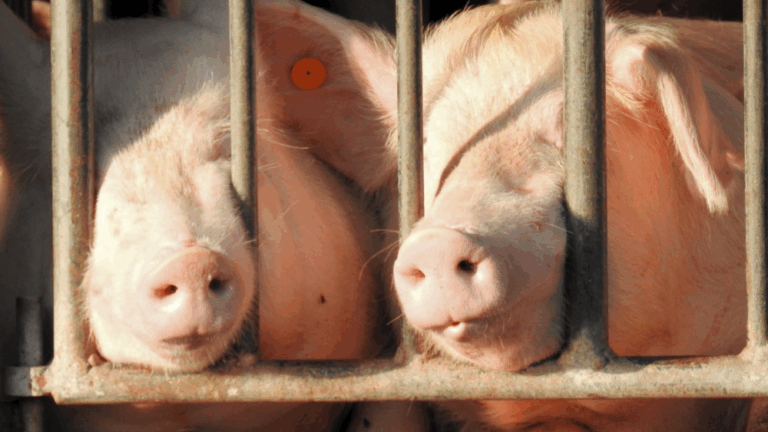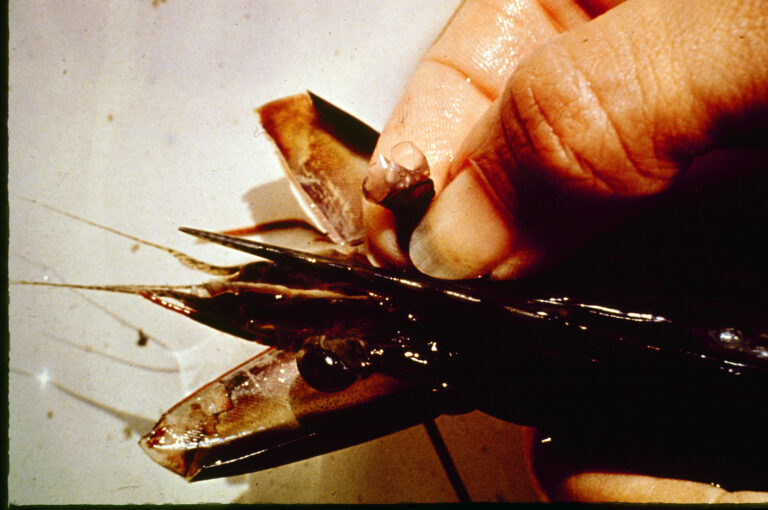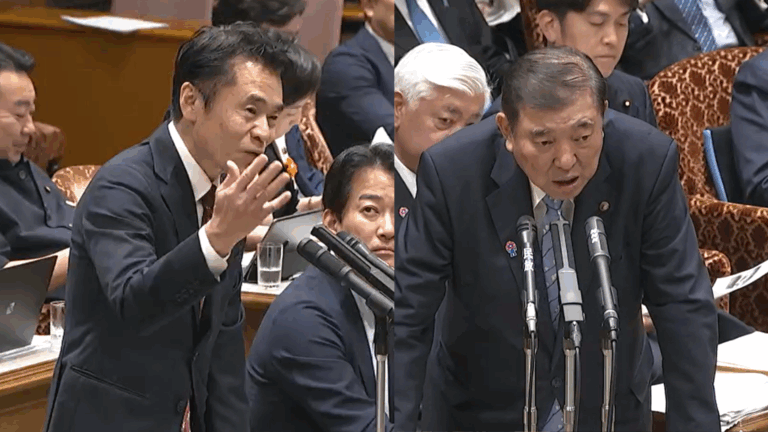[The campaign ended when we made Toridoll Holdings stand at the starting point for animal welfare.]
Hens are left in cages in Japan, while they are released globally, what does that tell us?
On September 3, 2022, Toridoll Holdings Corporation(THC), based in Tokyo, Japan and running fast food restaurant chains such as Marugame Seimen (chain of noodle shops), announced on the website their timeline and stance for switching eggs from caged to cage-free. The announcement was released just after the global campaign for the protection of egg-laying hens was launched by Open Wing Alliance (OWA), a global alliance to free laying hens from cages with more than 90 member organizations from 63 countries worldwide.
OWA has conducted a global campaign targeting companies headquartered in Europe and USA, such as Starbucks, Hilton Hotels & Resort, Yum Brands owners of KFC, Pizza Hut, etc., aiming to switch to cage-free eggs.
The campaign was successful as the above-mentioned companies including their Japanese subsidiaries already decided to switch to cage-free eggs. Then, the campaign was restarted to cover Asian companies, and the Japanese noodle chain became the first target.
In the summer of 2021, the Animal Rights Center Japan (ARCJ) requested THC to hold a dialogue on animal welfare promotion, but was rejected. Subsequently, the ARCJ, along with other animal protection groups, again requested the dialogue, but it did not happen. In an era in which many companies value dialogues with stakeholders and address social issues together, no dialogue with THC has been achieved. That is one of the reasons why THC was targeted.
On May 24 of this year, OWA launched a global campaign. We first participated in the campaign. However, as the door to dialogue with THC opened just after the start of the campaign, we decided to withdraw from the campaign on the first day. In principle, we do not participate in the conduct of a campaign when the dialogue can be conducted in a positive manner. So when THC and CRA agreed to the first discussion date, we withdrew from the campaign. In the meantime, the OWA’s campaign continued.
The world is cage-free, Japan just announces the first step.
As a result of the campaign, THC announced they would switch to cage-free eggs in 26 countries worldwide by 2030, but “excluding Japan”. In Japan they have just started an initiative to switch to cage-free eggs. Soon after the announcement, the campaign came to an end. OWA is delighted with the THC’s decision, which would relieve the pain of hens.
However, THC has not able to catch up with global restaurant chains that have actively promoted animal welfare. Although cage-free eggs will become a global THC standard, caged eggs inevitably persist in Japan, where THC is headquartered. In the past, there were companies which also declared the use of cage-free eggs worldwide excluding Japan, China, Ukraine and Russia. This revealed that production technologies for egg-laying are significantly lagging behind in Japan.
What does “excluding Japan” mean? -It reveals technological backwardness of the Japanese livestock industry.
THC has made the following commitment on its initiatives:
In Japan, we will strive to procure eggs raised in accordance with “Guidelines on the Breeding Management of Egg-laying Hens according to Animal Welfare Principles” as issued by the Japan Livestock Technology Association. As an additional step forward in Japan, we aim for (ten) 10 Marugame Seimen restaurants to completely switch to cage-free eggs by the end of FY2022. Then by the end of FY2023, for three percent (3%) of all restaurants in Japan to switch to using cage-free eggs, followed by subsequent annual increases. (excerpt from THC statement on Sep. 8, 2022)
The above is not a high goal at all, and only shows that THC, who were reluctant to tackle animal welfare issues, has finally started to address the issues as other companies already do. Other restaurants and food retailers aim for higher goals. We will continue to speak will continue to talk with THC so that they will make a commitment to switching to 100% cage-free eggs in Japan, as well as in foreign countries.
Actually, THC has difficulties to follow the first sentence of their commitment to Japan. The guideline recommends the size for rearing a hen be 430 to 555cm2/hen. But food companies should know that few poultry farmers in Japan follow this recommendation. As a matter of fact, the rearing space of a major poultry company in Japan is 285cm2/hen. Even if it is not as small as this company, we know that big poultry farmers have figures like 360 cm2/hen. It is still much smaller than target figures regulated by EU, Korea and some states in USA, which is 750cm2/hen on average.
Cage-free is a future for the livestock industry in the world.
In poultry farms using cages, hens are crammed together that they cannot move naturally at all, which is vitally important for hens. Average size for rearing is less than B5 paper (182mm x 257mm) only, which is the worst level in the world. The bones of stacked hens become so fragile that the bones are easily broken many times in the cage. It is known that compared to cage-free hens, those reared in the battery cage have a higher mortality rate, and a higher rate of Salmonella growth.
By switching to a cage-less, the welfare of hens in the food supply chain improves dramatically. The world has switched to cage-free. In the EU, for example, more than 55 % of eggs are already from cage-free hens. In the US, 73% of eggs will soon be from cage-gree hens due to the cage-free commitment made by the US corporations. In Korea the percentage is still 4.6%, but the number of cage-free eggs is steadily increasing. In Japan, however, this percentage is estimated to remain only 1%. (Japan has no government statistics)
Trend of animal welfare in companies.
Big companies around the world have already committed to cage-free. In Japan, foreign companies and hotels like KFC, Pizza Hut, Burger King, Marriott Co. and IGH Group, as well as domestic companies, including hotels, retailers and restaurants committed to increasingly active,cage-free. The number now exceeds 180. The movement towards cage-free has become increasingly active, especially in consumers’ cooperatives (Co-op), where the percentage of cage-free soars in these years.
Translated By: A.Kimura
